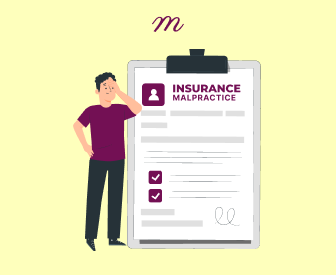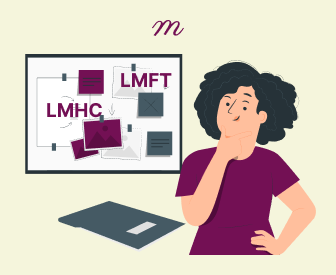Have your progress notes written for you automatically
Medical necessity is an important part of documenting mental health treatment. Here’s why it matters.
What is Medical Necessity?
Medical necessity is the concept that a particular medical treatment or service is required to diagnose, treat or prevent a specific medical condition and that it is appropriate and acceptable according to generally accepted standards of medical practice. The idea is that medical treatments or services should only be provided if they are necessary to achieve a specific medical goal, and should not be provided simply for convenience or because they are requested by a patient or family member. Medical necessity is often used as a criterion for reimbursement of medical services by insurance companies.
In order to provide the best possible care for your clients, it is important to document your work in a way that meets the standards of medical necessity. Documentation not only protects you as a therapist, but it also helps to ensure that your clients are getting the treatment they need and deserve.
Mental health disorders can often lead to impairments in a person’s ability to work or maintain social relationships. It is important to include any impairments in your progress notes. To be reimbursed by insurance companies for mental health services, it is critical to document any impairments or symptoms that your clients are experiencing. This allows you to prove that the treatment you are providing is medically necessary and not just for convenience.
There are several different things to look for when determining if a client has an impairment. Some common examples include work habits, academics, life tasks, relationships, sleeping habits, and the use of substances. If you notice any changes in these areas, be sure to document them in your progress notes.
It is also important to keep in mind that you may need to break confidentiality to get help for a client who is experiencing a serious and imminent threat to themselves or others. When in doubt, always refer to state and federal privacy laws.
Why Medical Necessity Matters
There are many reasons why medical necessity is important for psychotherapy notes.
- If we are ever audited by an insurance company, we need to be able to show that the services we provided were medically necessary.
- Our records could be subpoenaed in a legal case, and we need to be able to show that we provided appropriate care.
- If a client goes out on disability or workers’ compensation, we need to be able to show that their condition was serious enough to warrant time off from work.
- Finally, and perhaps most importantly, if a client is ever a danger to themselves or others, we need to be able to show that we assessed the situation and took appropriate action. Documentation is the best way to do this.
While the documentation does take time (if you don’t use Mentalyc), it is important to remember that it is a crucial part of your job. It helps to protect you and your clients, and it ensures that you are providing the best possible care. As a therapist, you know that progress notes are an essential part of documenting treatment. But what you may not realize is that progress notes can also play a key role in proving medical necessity.
Documentation as Evidence of Medical Necessity
Progress notes can be a key piece of evidence in proving medical necessity. By documenting the goals of treatment, the progress made towards those goals, and the reasons for continued treatment, therapists can show that their services are indeed medically necessary.
Of course, simply documenting that services are medically necessary is not enough. Therapists must also be able to defend their documentation in the event of an audit or review. This means having a strong understanding of what medical necessity is and being able to provide evidence to support your documentation.
Resources for Documenting Medical Necessity
If you’re not sure where to start, there are a few therapy resources that can help. The Centers for Medicare and Medicaid Services (CMS) and the American Physical Therapy Association (APTA) both have definitions of medical necessity that can help understand what is required. In addition, the American Occupational Therapy Association (AOTA) has a helpful guide on how to document medical necessity.
How can Automatically Cover Medical Necessity in Your Progress Notes?
With Mentalyc, the most reliable software to use to take your notes, covering medical necessity in your notes is very easy because it’s straightforward to use, saves time, and provides you with the highest quality of notes.
To learn more visit: www.mentalyc.com or Register for a free trial.
Sources:
Reviewed by: Brittainy Lindsey
Disclaimer
All examples of mental health documentation are fictional and for informational purposes only.









